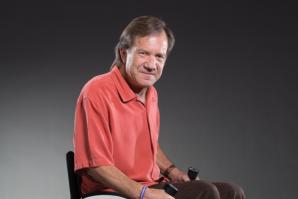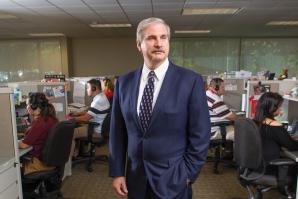Latest Stories

Avoiding the Pop
Why do so many women tear their ACL, and how can they prevent it?
In one of the crueler twists of sports, ACL tears often happen in freak accidents that you can’t really control. Seventy percent occur without contact. Even more cruelly, a woman is four times more likely than a man to tear the ligament — especially if she’s young and active.

Waterborne Disorder
In the event of flood, area hospitals are at risk
In the hours before Hurricane Sandy hit New York last year, the country’s oldest public hospital thought it was ready.

Are Attorneys the Rx For Obamacare?
Changes in healthcare shift law agencies into high gear
Hospitals, law firms and state agencies involved in implementing the Affordable Care Act have seen a sizable bump in workload — and in some cases, staff sizes — as they prepare for the major overhaul mandated by the 2010 law and to adjust to other industry changes.

Paging Dr. Bera
Seeking remedies in the halls of Congress
U.S. Rep. Ami Bera has spent most of his career as one of the Capital Region’s leading voices on health care, first as a doctor and later as Sacramento County’s chief medical officer and a dean of admissions for the UC Davis medical school.

Bone to Pick
Without proper care, hip fractures can drastically increase mortality rates.
Eighty percent of women say they’d rather be dead than in a nursing home.

Going Meta-Care
Obamacare presents a radical shift in Medicare delivery
As Obamacare begins to take effect in hospitals across the country, it’s becoming clear that the new financial model for Medicare is the polar opposite of a government takeover.

Dooley Noted
Obamacare commentary from California’s health secretary
You would be hard pressed to find anyone with a greater breadth of understanding and experience in navigating the complex Golden State health care system than Diana Dooley, California’s secretary of Health and Human Services.

Superquad Rolls Back
One man and his business are reborn. Again.
Most businessmen have a dream of the business they want to build before they begin. Brian Watwood’s vision for his new company was born in a personal nightmare.

Economic Regeneration
Can stem cells grow the region’s bottom line?
A broken leg used to be a death sentence for a horse. Now, the University of California veterinary teaching hospital in Davis is using stem cells to help the horses heal quickly.



